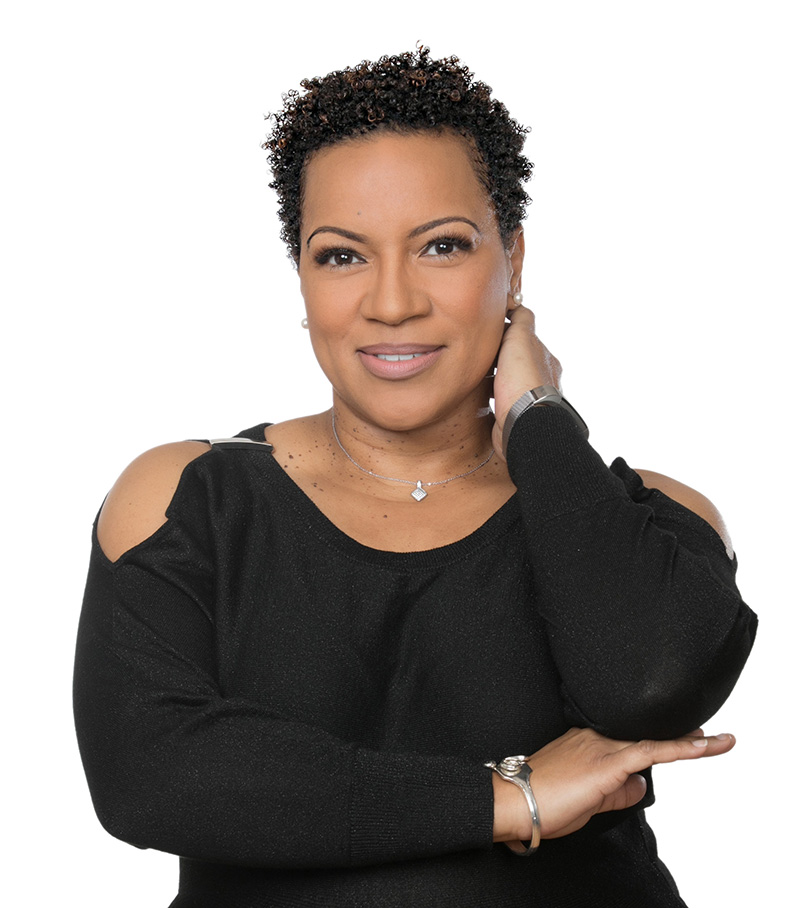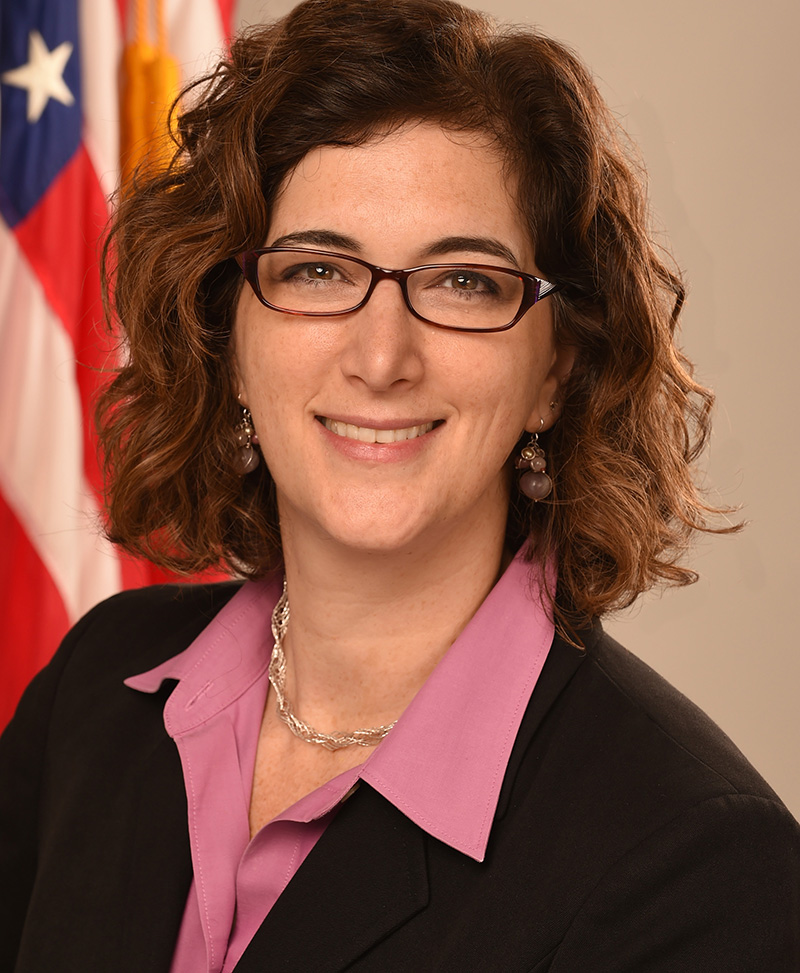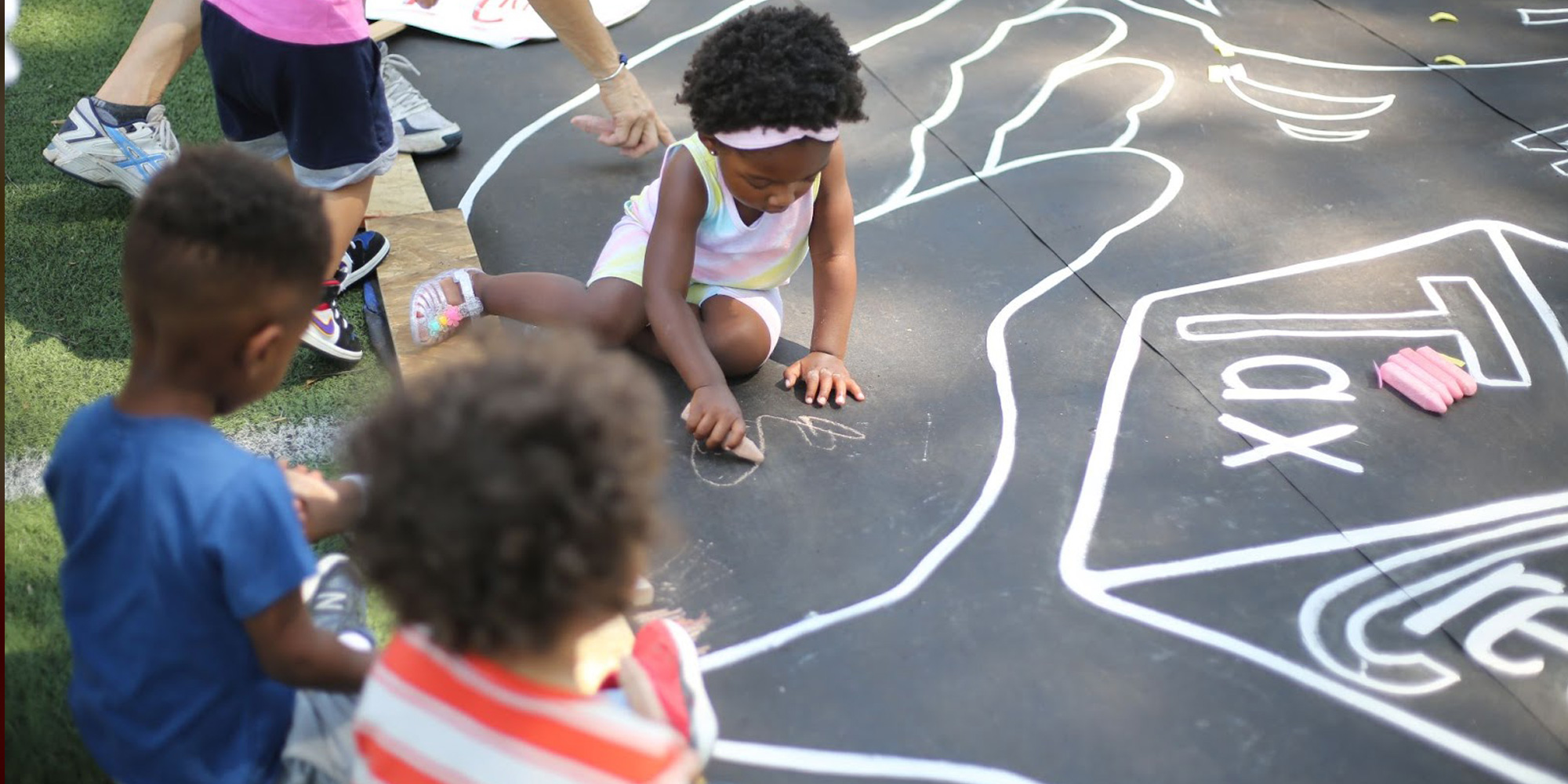As the fight for an effective and well-funded child care system continues, philanthropies are exploring innovative avenues to support advocacy and organizing. One such initiative is the Raising Child Care Fund (RCCF), a project of the Early Childhood Funders Collaborative. To learn more about RCCF, I sat down over Zoom with Rachel Schumacher, who coordinates the fund, and LaDon Love, executive director of SPACEs in Action, one of the fund’s grantees in Washington, D.C.
Elliot Haspel (HASPEL): To start – what is the Raising Child Care Fund?
Rachel Schumacher (SCHUMACHER): The Raising Child Care Fund is a really innovative attempt to shift funds from private foundations into the hands of grassroots organizations that work directly with and alongside parents, early educators and caregivers who are most impacted by our lack of a real child care system in this country, and have the most insight really into how to fix it.
The Fund is trying to center their voices in the discussion, both in calling for change and actually being at policy-making tables or influencing them with their own stories and ideas for what the policy solutions ought to be. For too long, those folks have really not been included in the process.
HASPEL: LaDon, how did you get involved or hear about the Raising Child Care Fund?

LaDon Love (LOVE): So we are one of the founders of the Under 3 DC campaign in DC. There were three organizations that started it off. How SPACEs in Action got involved: we are an organization that works primarily in the Black community. And as we began to do this work we affirmed the need to look beyond just the Black community, so we do a lot of work in the Black and brown communities and within that also with immigrants. So looking at early learning, our thing has been, how do we create a space for the families and providers who are most directly impacted to be at the table?
What we do that I feel is different—I like to say our secret sauce—is that we make the connection with the center or the family home. And then our goal is to build the relationship because the trust factor is so important.
And so with that said, we work to build leadership with the providers and the families that they serve. The goal there is that we want people to speak from their own experiences. And sometimes it’s a pain point. Someone said to us, we should use the term ouchie. So sometimes it’s that ouchie, but we want folks to connect their values because we know on a different level, we connect by values.
Then we begin to tell this story of how those values connect to who we are. Then we talk about that pain point—that ouchie—and give a bold solution to what we want to see different. And then most importantly, what are the steps we need to take in order to move in that direction?
HASPEL: That’s helpful. And what has the partnership in being a grantee of the Raising Child Care Fund meant for your work?
LOVE: Oh, it’s meant a lot. I feel like the relationship has really blossomed into a paradise flower. That’s one of my favorite flowers. And because of the fact that not only are we funded, there’s a relationship that we have with Rachel and with the RCCF. And when they’re working on something, they come to us and see us as a part of their think tank.
I can also go to her and say, hey, I’m stuck. Can you help me think through something? If she doesn’t have the answer, because she has a much broader network than I do, she’ll connect me with someone. I’ve worked to be a connector, but you are limited on who you have in your circle. Rachel has a much broader circle. The Raising Child Care Fund has a much broader circle and she’s always open.
And RCCF is always open to connecting you with folks outside of even what they offer because she wants to understand what we do as a totality. So child care is one of the pieces that we work on, but we work on other issues too. RCCF has been an advocate for us with other foundations and with other funding sources. They have been a resource to us in helping us think through pieces of work that we’re doing, but also a sounding board.
They have been a space that has given us higher visibility because Rachel and the child care fund and even some of the other folks that she works with sometimes do different conversations. Whether it’s a conference, maybe even a conversation that RCCF pulls together itself. She often says, ‘Hey, could you help me think through this piece?’ Or she’ll say, ‘can you facilitate a conversation?’ And then sometimes she’ll just say, ‘what are you thinking about?’ Because actually I did ask her to help me to do a forum with our storytelling process so we can be in front of more funders. I think it’s a give and take, but it’s a beautiful relationship and I wish I had more of those.
Also, RCCF has at least monthly opportunity-centered conversations with the grantees and we’re all in different states. So not only do we get to find out about opportunities like this conversation with you today, we also get to come together and talk about what we’re doing in our states.
There’s so much learning that we can do because, what might be possible in another state may not be possible here. Also what may have been tried in another state has not been tried here. So we get to learn there. There’s also the bonding that happens during that call, and then conversations happen outside of that call. But it becomes, I guess, a Mecca is a good way to say it because we all come together in this space and get to talk about what we’re doing.
HASPEL: And Rachel, so how many grantees are there?

SCHUMACHER: We now have 16 grantees, and we’re in 15 states. I started talking about this as a project of the Early Childhood Funders Collaborative in 2018 and we made our first grants in 2019. We had raised at that point $1.9 million dollars that was going to be spent over three years. And it was sort of seen as an experiment to see what we learn from funding grassroots voices.
A lot of our early childhood funders were recognizing that they had never funded in this space and that it may be a missing element that was really needed, given that we had tried brain science and we had tried return on investment. We tried economic development. We tried just, this is the right thing to do. We tried school readiness and we never really got the kind of public support and investment we needed to actually get to transformation. And we knew we needed to transform the system and we knew some of the best ideas were coming from the people on the ground who weren’t being heard.
So we started it with that amount and we couldn’t reach everyone. We couldn’t reach DC. [Ed. note: SPACEs in Action was rejected the first time they applied to RCCF.] We had to make some hard choices and we had three times as many requests for funding than we actually had raised. So the question of would people apply was clear. And then, just honestly what happened is after making the case over and over again, between the reality of watching the pandemic hit our child care programs so hard… so all this was going on and we started to get funders calling us and saying we think this is important to invest in.
Now we’re at the point where we have 12 contributing foundations. It’s probably about to be 13. And we have raised close to $8 million dollars to be spent over a five-year period. We could spend way more. We know that. And we had to fund at a lower level than we wanted to because we had so much interest in the beginning.
HASPEL: Coming from the foundation world, it strikes me that you all are doing things very differently than traditional philanthropy has usually done. And so LaDon, I’m curious, Rachel talked about how it is resource intensive to do the work that you do. Can you talk a little bit about what went into the campaign there, because D.C. has won some huge gains?
LOVE: Yeah, $75 million [for early childhood in the recent D.C. budget], overall it’s like $170 million dollars [for social programs]. So I would say one lesson was the assessment that pushing just child care alone wouldn’t get us the win. So housing was added in and a couple of other issues were added in that built a coalition, but also stopped any infighting across issue areas. The issue-adjacent coalition building was really important.
And the second lesson was to have providers, families, both home-based and centers coming together, calling on the City Council to do something was really key. And the third key was to utilize social media and online tools to engage, inform and to educate people. Because we cannot be on the streets like we used to [because of the pandemic]. I mean, myself, I don’t want to collect paper from people. So we use QR codes, right? But not everybody has a phone.
There are people in our leadership who have flip phones, right. And that’s real talk. And there’s people who have phones where they’ve paid by the minute or they pay for a certain data plan. And before the month is over, it’s gone. So there have been some cases where we’ve helped people with their cell phone. You have technology. The digital divide is real.
The other thing is that the pandemic has really heightened, brought awareness, has elevated, has made it more commonplace for people to talk about mental health issues and mental health wellness. One of the things that we did quickly when the pandemic was at its height was to create a healing justice strategy. Folks were stressed about child care, stressed about their children not going to school, stressed because they didn’t have resources, stress because transportation was a challenge.
HASPEL: Very helpful. You know, I think oftentimes we talk about advocacy and there are two groups. There’s the grasstops, like your traditional children’s advocates. And then there’s more of the grassroots, the people who are most directly affected by these issues. And I think it’s safe to say there can be a tension at times between those two groups. So how do you see that playing out and where does the Raising Child Care Fund position itself?
SCHUMACHER: I didn’t start with this, but we have three stated goals in our grant making, the first one, obviously being centering the voices, the most impacted and getting them a chance to be at the table. The second goal is coalition building and it’s very intentionally an interest of our funders. A lot of our funders started funding professional advocacy and had never done this before, but they really wanted to see whether we could support those relationships. From the start, we’ve partnered with the Alliance for Early Success because they are a major national funder of state- based early childhood advocacy, and they had a shared interest with us.
And our third goal is obviously equitable child care, I don’t need to go into that. We also have an unstated goal of just educating on what organizing is. And we always feel like we do that best when we put our grantees first and we just sit back and they talk. So we have held several conversations like that for foundations to understand what it looks like.
But to your question, we really wanted to be a part of the Child Care NEXT formation. And we really push hard for grassroots to be seen as an equal partner in that conversation and how the grants were written.
HASPEL: So if people, particularly funders, want to get involved, what do they do?
SCHUMACHER: You know, that’s a great question because first of all, one of the things that I think is unique about the Raising Child Care Fund is the fact that the funders are so involved in helping promote and get the word out.
We really want to build more partnerships with social, economic and gender justice funders who have really come all in on this “care economy” work. We’re excited to see the connections that are being made. We do have one funder that comes out of the gender equity, reproductive equity area. But we need to do more and we need to figure out how better to articulate that.
I think the other thing I haven’t spoken about is our effort to really help folks match with state and local funding by requiring it in our application, although we’ve lowered the expectation with the pandemic. We get on the phone and pitch for our folks—if they’re trying to get funding from a state or local funder—and say why we selected them. We reach out through the foundation community to let people know about the opportunity to apply.
I think one of the other beauties I feel of the Raising Child Care Fund is that the child care community can be more insular; people talk amongst themselves. This is really creating a space for folks to talk outside of their normal networks, and I think it is timely.
Note: Early Learning Nation is an initiative of the Bezos Family Foundation, which is a funder of the Raising Child Care Fund.




